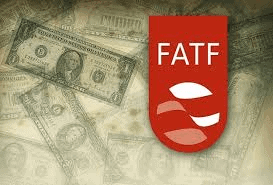The Complexities of Tracking Money Laundering in Casinos
 The gambling industry is home to many legitimate and serious businesses. Unfortunately, with so much cash being traded across the world, casinos and sportsbooks do attract more than their fair share of shady characters. A recent money laundering controversy definitely raised a number of eyebrows. Some are even calling for drastic steps to keep money laundering schemes from arising in the future.
The gambling industry is home to many legitimate and serious businesses. Unfortunately, with so much cash being traded across the world, casinos and sportsbooks do attract more than their fair share of shady characters. A recent money laundering controversy definitely raised a number of eyebrows. Some are even calling for drastic steps to keep money laundering schemes from arising in the future.
The Financial Action Task Force (FATF) is an entity based in Paris that has a novel idea how to stay on top of money laundering endeavors. The FATF suggests casinos should monitor all players who are depositing and transacting $3,000 in cash.
One obvious drawback exists to this type of monitoring. People who have nothing to do with money laundering end up falling under someone’s watchful eye. Customers generally do not respond well to invasions of privacy. Likely, they may even leave casinos when concerns over privacy invasions arise. In this case, the privacy also surrounds personal decisions people do with their money. Again, no one wants to see someone poking a nose into personal finances. So, the notion of monitoring people moving money into a casino is not going to be popular.
Now, if there are other criteria that must be matched prior to any monitoring, players are likely to feel more at ease. Whether or not a more expansive profile of a money launderer is drawn up before monitoring action takes place remains to be seen. In actuality, it remains to be seen whether or not any casinos opt to agree to monitoring players in the first place.
Certain locations may end up being targeted more for scrutiny than others. The Philippines, for example, is a country that is considered to be at higher risk for money laundering activity than other parts of the world. As such, there is a desire to see the Philippines institute better tracking.
A major problem does arise here. The Philippines is a destination for many tourists who travel to gamble in the fine casinos on these Philippine Islands. Anything that leads some would-be tourists to opt to travel to another location is not going to be embraced by the casino industry. In all honesty, the Philippine government may be less-than-thrilled about anything capable of harming tax dollars.
A feeling exists that any laws or procedures intended to catch money launderers has to be extremely effective in order to put people at ease. The program must be able to identify and prosecute legitimate lawbreakers. Innocent customers should not be caught up in the net.
Once greater confidence is instilled; more are going to be willing to embrace attempts at tracking those guilty of money laundering. Hopefully, a reliable tracking method will be developed soon.
















